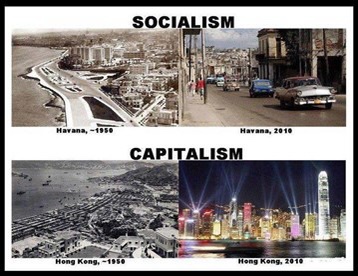In recent times, the debate surrounding socialism and its merits has been fervent and widespread. While proponents argue for its potential to address social and economic inequalities, critics raise concerns about its potential drawbacks. In this article, we will delve into the reasons why some argue against socialism, examining its impact on economic prosperity, individual liberties, and government control. It is important to note that this discussion aims to present various perspectives and promote a balanced understanding of the topic.

- Inefficiency in Resource Allocation:
Critics of socialism argue that centrally planned economies, which are typically associated with socialist systems, often struggle with inefficiencies in resource allocation. Unlike free-market economies where prices and competition guide allocation, socialist systems rely on government planning. Critics contend that this approach tends to hinder productivity, innovation, and entrepreneurial spirit, leading to suboptimal outcomes.
- Lack of Incentives and Innovation:
Socialism is often criticized for its potential to stifle individual incentives and innovation. In a system where wealth redistribution is a core principle, critics argue that the motivation to work hard and take risks may diminish. The absence of strong incentives and rewards for innovation can impede progress and hinder economic growth.
- Reduced Individual Liberties:
Another concern raised by critics is the potential impact of socialism on individual liberties. In systems with a stronger emphasis on government control and redistribution, critics argue that personal freedoms, such as freedom of choice and private property rights, can be eroded. The fear is that excessive government control can limit individual autonomy and lead to a loss of personal liberties.
- Risk of Government Overreach:
Critics of socialism express concerns about the concentration of power in the hands of the government. They argue that centralized control can lead to excessive bureaucracy, corruption, and a lack of accountability. The potential for government overreach and abuse of power is seen as a significant risk in systems that place a high level of control in the hands of a few decision-makers.
- Economic Challenges and Potential for Poverty Traps:
Critics contend that socialism can present economic challenges, including a lack of economic incentives and the potential for poverty traps. Without market-based mechanisms to drive economic growth and opportunity, critics argue that socialist systems may struggle to alleviate poverty and create sustainable prosperity.
The debate surrounding socialism is multifaceted and complex. While some argue in favor of its potential to address societal inequalities, critics raise valid concerns regarding its impact on economic efficiency, individual liberties, and the risk of government overreach. It is essential to consider various perspectives and engage in informed discussions to gain a comprehensive understanding of the potential advantages and disadvantages of different economic systems. By doing so, we can contribute to a more constructive dialogue about the future of economic organization and the pursuit of prosperity and equality.
As an Amazon Associate we earn from qualifying purchases through some links in our articles.



